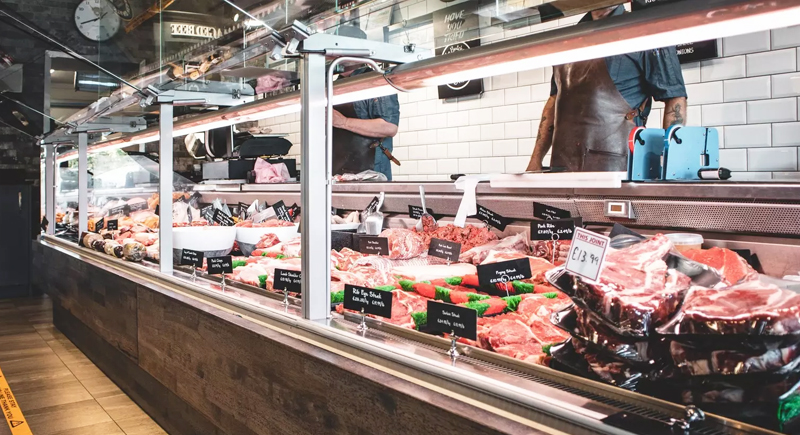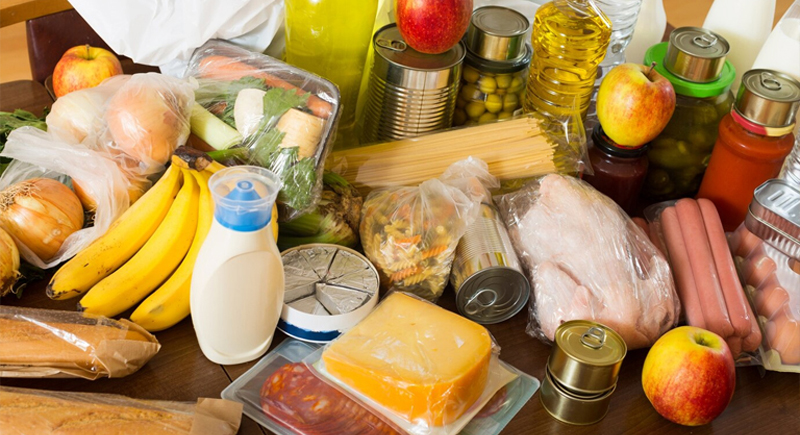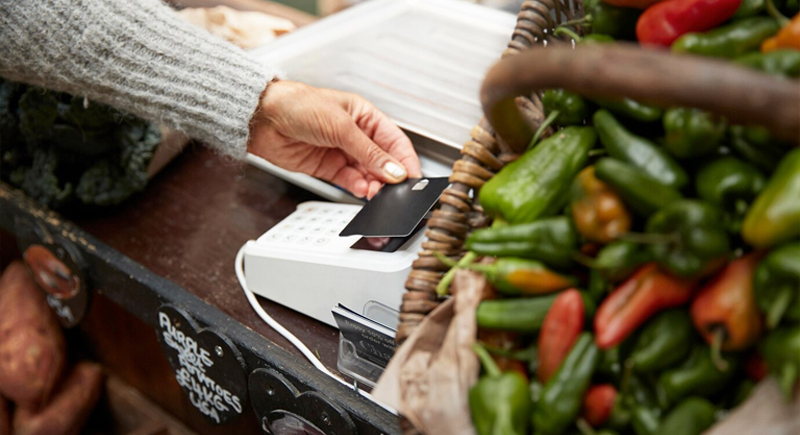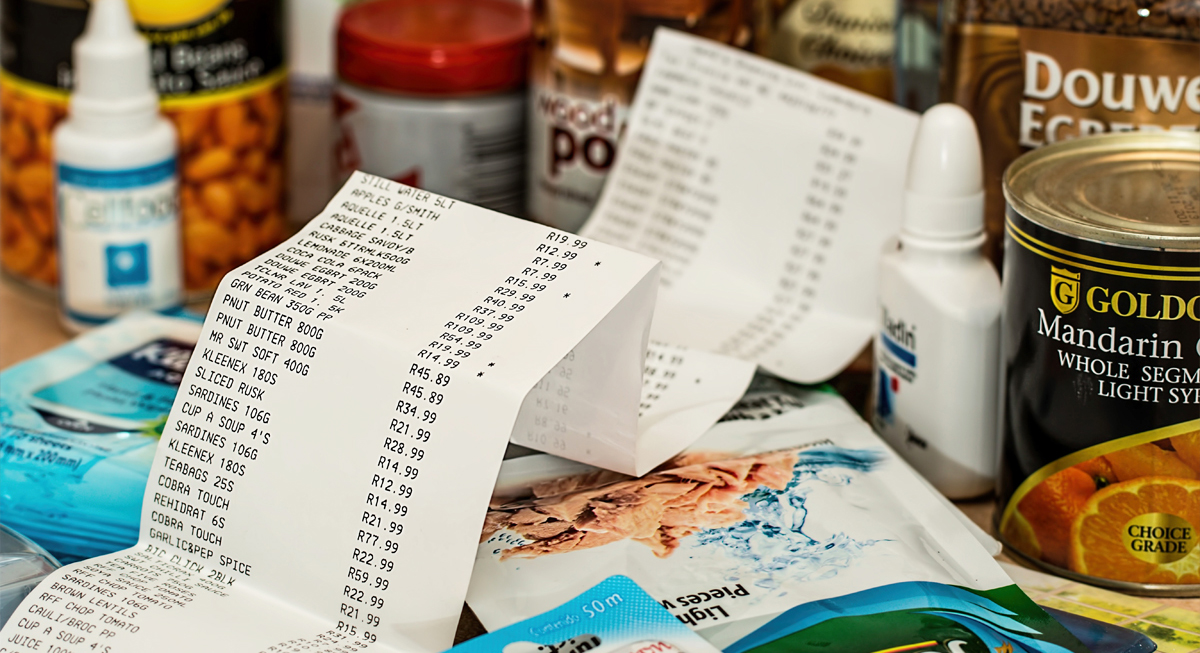Grocery shopping can quickly become a significant part of your monthly budget, especially when prices are perpetually rising. However, with a few strategic approaches, you can trim your bills without compromising the quality or quantity of your meals. This comprehensive guide will explore 20 unexpected tips and tricks to save money on groceries.
Create a Meal Plan

Credit: freepik
Imagine opening your fridge and knowing exactly what's for dinner every night of the week. That's the power of meal planning. By deciding in advance, you avoid the temptation of unnecessary items that look appealing but aren't on the menu. This cuts down on food waste and eases the daily stress of meal decisions. Plus, sticking to a plan means every item in your cart has a purpose.
Take Inventory

Credit: pexels
Before heading to the store, take a moment to see what you already have. It's easy to forget about that bag of rice or can of beans tucked away in the pantry. A quick inventory can prevent duplicate purchases and help shape your shopping list. This step ensures that you're only replenishing what you truly need. It's a simple habit that can save you money and time.
Prepare a Shopping List

Credit: freepik
Armed with your meal plan and inventory, crafting a detailed shopping list is your next move. This list acts as your shopping compass, keeping you on track and away from the pitfalls of impulse buys. It's not just about remembering what to grab—it's a shield against those extra goodies that somehow find their way into your cart. Plus, a list allows you to scout for deals in advance, further stretching your dollar. Treat your list as a budgeting tool, not just a reminder.
Eat Before You Go

Credit: pexels
Shopping on an empty stomach is like going to the grocery store with blinders off: everything looks tempting. Eating a meal or snack beforehand centers your focus on the list, not your hunger. This way, you're more likely to stick to your planned purchases and resist the allure of snacks and treats. It's a simple step that can profoundly impact your shopping behavior. Plus, you're likely to make healthier choices when you're not driven by hunger.
Set a Strict Budget

Credit: pexels
Deciding on a budget before entering the store gives you a clear financial boundary. With rising food prices, this may mean making tough choices, like opting for a less expensive brand or skipping luxury items. Each time you resist adding an unplanned item to your cart, it's a win for your wallet. A set budget helps balance quality and cost, ensuring you get the most out of every dollar. It's about finding that sweet spot between frugality and enjoying your meals.
Avoid “One-Item” Trips

Credit: pexels
We've all done it—popped into the store for just one thing and walked out with several. These trips are budget busters, turning a simple purchase into a spree. Consolidating your shopping trips forces you to be more intentional with your purchases. It reduces the temptation to grab extras and helps keep your grocery spending in check. Think of it as making every trip count.
Follow a Planned Route

Credit: unsplash
Do you ever notice how some items seem to find their way into your cart? You can steer clear of those impulse buys by mapping out a route that aligns with your list. Avoiding the detours means you're less likely to be tempted by promotional displays and seasonal items. This focused approach not only saves money but also time. It turns shopping into a more efficient and budget-friendly activity.
Avoid Samples

Credit: freepik
Those free samples can be a double-edged sword. They might introduce you to new products, but they can also tempt you into buying something you didn't plan for. Sticking to your list and bypassing the sample stations keeps you in control of your cart. It's about staying true to your shopping mission. Remember, every added item is an added expense.
Don’t Touch the Impulse Items

Credit: freepik
Impulse items are cunningly placed to catch your eye and encourage last-minute additions to your purchase. These are often found near the checkout, preying on your momentary decision-making. By resisting these temptations, you safeguard your budget from those "just a few dollars more" items. It's a practice in discipline that pays off in savings. Keep your eyes on the prize: a budget-friendly checkout.
Avoid the Deli Counter

Credit: freepik
While the deli counter offers convenience, it has a higher price tag. Choosing whole ingredients and preparing meals at home is more economical and healthier. It gives you full control over what goes into your food. This approach can significantly lower your grocery bill. Plus, it's an opportunity to sharpen your cooking skills.
Overlook the End-Of-Aisle Promotions

Credit: freepik
It's easy to be swayed by the end-of-aisle deals, but they're not always bargains. Retailers pay premium spots for these displays, and the cost is often passed on to you. By focusing on your list, you can avoid these cleverly placed temptations. This requires a bit of willpower, but remembering your budget can help. Often, better deals are found elsewhere on the shelves.
Give Yourself a Time Limit

Credit: freepik
The longer you linger in the store, the more you'll likely buy. Setting a time limit for your shopping trip can help keep you focused and efficient. This strategy minimizes the chances of wandering into unnecessary aisles. It's about making your time in the store as productive as possible. A quicker trip means fewer opportunities for unplanned purchases.
Listen to Upbeat Music

Credit: freepik
Music influences our mood and behavior more than we might realize. Playing upbeat music through headphones can keep your energy high and your shopping pace brisk. This can lead to spending less time in the store, reducing the temptation to browse and buy extra items. It's a simple trick with a powerful effect on your shopping experience. Plus, it makes grocery shopping more enjoyable.
Choose Whole Products

Credit: freepik
Whole products, like a block of cheese or a whole chicken, offer better value for money than their processed counterparts. They allow for greater portion control and can be used in multiple meals. This not only saves money but also encourages healthier eating habits. It's a smart choice for both your wallet and your wellbeing. Plus, it adds variety to your cooking.
Check Lower Shelves

Credit: freepik
The most expensive items are usually placed at eye level. Looking lower can reveal more affordable options that are just as good. Store brands, in particular, offer significant savings and are often produced by the same manufacturers as name brands. This simple shift in focus can lead to substantial savings. It's about smart shopping, not just shopping.
Choose a Basket or Small Cart

Credit: pexels
A smaller cart or basket naturally limits how much you can carry, forcing you to prioritize your purchases. Studies have shown that the size of your shopping cart can influence how much you buy. By choosing a smaller option, you're less likely to make those unnecessary additions. It's a physical reminder of your budget and shopping list. Plus, it makes navigating crowded aisles a breeze.
Be Selective With Bulk Purchases

Credit: freepik
While bulk buying can offer savings, especially on non-perishable items, it's not always the best choice. It's important to consider whether you'll use all of an item before it expires. Bulk purchases also require an upfront investment and space for storage. Additionally, don't forget to factor in the cost of membership fees at bulk stores. It's about weighing the immediate savings against long-term use and costs.
Choose Your Coupons Wisely

Credit: freepik
Coupons can be a great way to save money, but only if they're for items you already planned to buy. It's easy to get caught up in the excitement of a good deal. However, purchasing something simply because you have a coupon defeats the purpose if it wasn't on your list. This discipline ensures coupons truly contribute to your savings. It's about smart couponing, not just coupon collecting.
Try Non-Branded Products

Credit: pexels
Generic or store brands can offer significant savings over national brands without sacrificing quality. These products are often made in the same facilities as their branded counterparts. Overcoming the bias towards branded goods can unlock substantial savings on your grocery bill. It's an easy switch with a potentially big impact on your budget. Plus, you might discover some new favorites along the way.
Buy Fewer Discounted Items

Credit: freepik
Sales and discounts are designed to attract shoppers, but buying items just because they're on sale can lead to overspending. If it's not something you need, it's not a bargain. Focusing on your list helps resist the allure of sales on unnecessary items. This approach ensures that discounts truly benefit your budget. Remember, the goal is to save money, not spend more on things you don't need.





